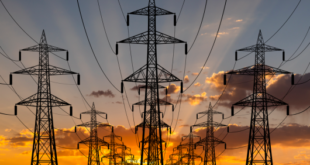Research conducted by the University of Manchester has found that shale gas is one of the least sustainable options for producing electricity. once socio-economic factors are taken into account.
The results. published today in the journal Science of the Total Environment. found that for shale to become a sustainable energy source large improvements would be needed. including a 329-fold reduction in environmental impacts and a 16-fold increase in employment.
Additionally. the environmental and social sustainability of shale gas would need to improve by up to a 100 times for it to compete with domestic natural gas and imported LNG.
It is the first major study to also consider economic and social sustainability of shale gas in the UK. rather than just the environmental impact. Assuming each of these criteria are equally important. shale gas ranked between fourth and eighth when compared to coal. nuclear. natural gas. liquefied natural gas (LNG). solar photovoltaics (PV). wind. hydro and biomass.
“Previous studies focused mainly on environmental aspects of shale gas. largely in the US. with scant information on socio-economic aspects.“ said Professor Adisa Azapagic. from the School of Chemical Engineering &. Analytical Science.
“To address this knowledge gap our research. for the first time. looks not only at the environmental impacts but the economic and social aspects of shale gas as well. This enables us to evaluate its overall sustainability rather than focusing on single issues. such as water pollution. traffic and noise. which have dominated the debate on shale gas so far.“
Currently. there are over 2.000 inland wells in the UK. and the government believes shale gas will promote energy security. provide jobs and stimulate economic growth. With an estimated 1.300 trillion cubic feet of shale gas reserves. the government estimates that at current consumption levels. just 10% would need to be extracted to satisfy the UK’s total gas needs for 50 years.
In 2013. a government report published by Public Health England assessed the risk to human health of extracting shale gas and concluded that “the risks to public health from exposure to emissions from shale gas extraction are low if operations are properly run and regulated.“
Despite this. hydraulic fracturing – more commonly known as fracking – has been criticised for its noise pollution. water contamination. causing earthquakes and requiring huge amounts of water: each fracturing job requires 1 to 8 million gallons (4.5 to 36 million litres) of water to complete.
The research team say that the broader scope of these results can help inform UK policy makers. NGOs and consumers. with Azapagic advising that “any future electricity mix would be more sustainable with a lower rather than a higher share of shale gas“.
 Iran Energy News Oil, Gas, Petrochemical and Energy Field Specialized Channel
Iran Energy News Oil, Gas, Petrochemical and Energy Field Specialized Channel




